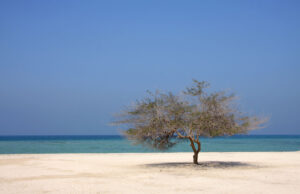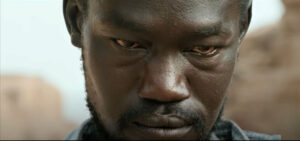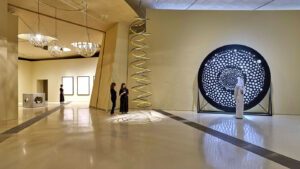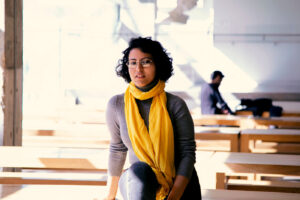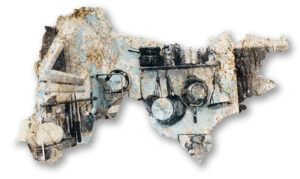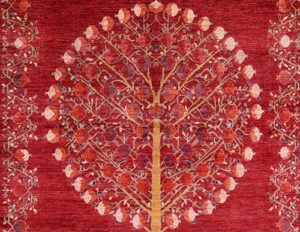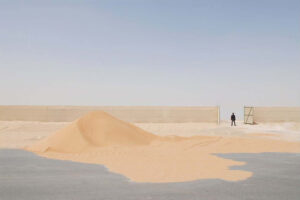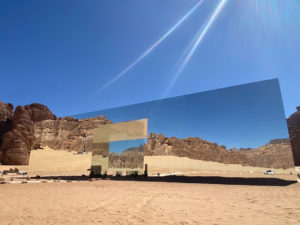The Camel vs the State of Israel?
Dror Shohet
It is twilight. The desert landscape on both sides of the car seems otherworldly, like we’re on the moon.
For miles now, we’re the only car on the road. Hafez (anonymity pseudonym) spots something and stops the car. I don’t see anything. He gets out and bends down, close to the ground. I’m looking at him curiously as he returns to the car. It was camel feces he took a good look at — a fresh batch, apparently. He gently turns off the road and into the desert, switching off the car lights. It’s essential that the park rangers don’t see us. After 200 meters of mindful driving, he hides the car behind a big bush. We step out into the wilderness; it’s that special time of fleeting light. We start walking. Soon after Hafez start calling them, “Rjad, rjad, rjad!”
“I can hear them. Can you hear them?” he asks. No, I can’t. I think to myself that my senses must be dull, and how I would be scared if I were here alone at twilight. But I feel totally safe because Hafez knows the desert — its every curve and plant — like I know the streets of Tel Aviv. It’s hard to see the ground and I use the flashlight on my phone. Hafez asks me to turn it off, and I feel foolish that I might have made us noticeable. I actually can see better without it when I’m looking far ahead into the distance. I just need to trust the ground to catch me. When I spend time with Hafez, it sinks in a bit more how disconnected and afraid our society is, so helpless in wild nature, especially after sunset. We’re so used to soft buffers to protect us from the raw, thorny, sweaty outside, accustomed to our AC, comfy shoes and sunglasses. There’s so much separation from the earth and it’s just so boringly normal.
“I think I’m hearing them now, but then maybe I’m imagining it,” I say. The smile on Hafez’s face remains cheeky. He is very proud of how he was brought up as a semi-nomad wandering the desert, always learning from it. “This was my school,” he says. He calls it “the desert senses.” And then, before I know it, they arrive, a bunch of them, standing in rows, gigantic looking, reminding me of weird mythological animals. They are brightly colored, almost glowing in the approaching night. I’m so impressed that these large wild animals can be so attentive and connected to Hafez, recognizing and following his voice from afar. It feels legendary, like a one-of-a-kind moment that I’ll cherish forever. They’re approaching us to say hello, and a mixture of fear and excitement catches me. They’re so adorable in a clumsy yet elegant way.
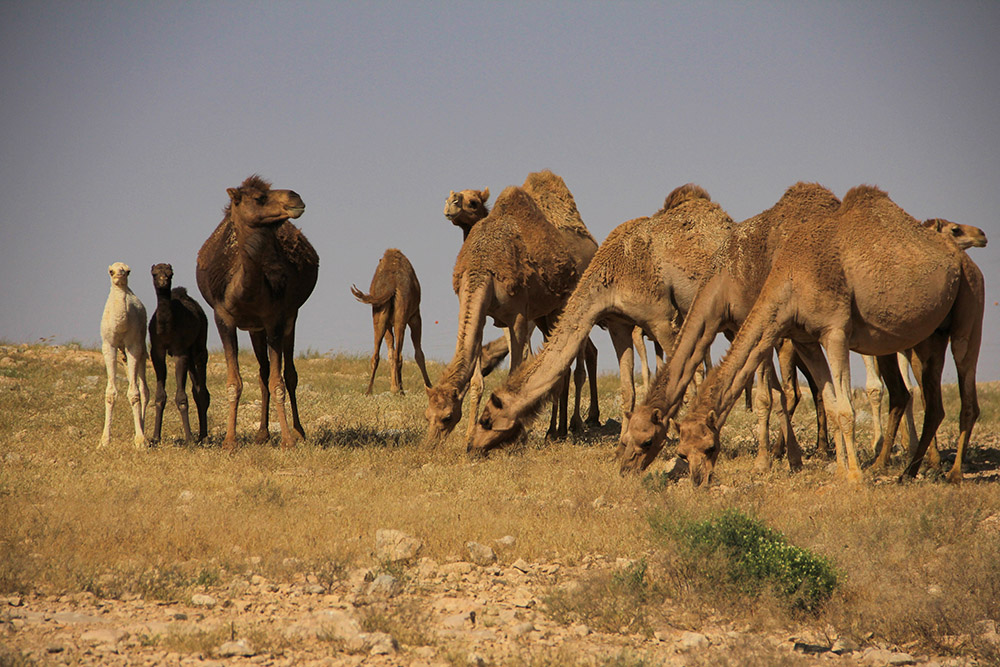
After a warm exchange of greeting gestures, Hafez doesn’t miss a beat. “They’re thirsty,” he says, “we must give them water.” He finds some part of a hose on the ground and we continue walking for ten minutes or so, Hafez, me and behind us, thirty majestic camels. They are surprisingly quiet. Every now and then I turn around to see if they’re still there. Meanwhile, Hafez keeps calling to them, “Rjad, rjad – rrrrrr.”
We reach water taps and hoses locked behind a fence. These belong to the national water company. I don’t remember how Hafez managed to get inside, or how he opened the locked faucet. I just remember him saying something like, “If they’re playing games, I too know how to play games.” A camel shoves her head just behind my shoulder, maybe to see the action. Bonded by the close proximity to her face, I want to stroke her, but I am afraid.
“They’re very thirsty, they can smell the water,” he says. Clearly it isn’t Hafez’s first time, because it’s not long before we hear the shrieking sound of the water pressure and the water starts streaming — a huge relief. He fills up a barrel and the camels gather around and drink in turns. It is very satisfying to see their long necks decorated with water droplets, looking like they are smiling.
Fauna Politics
The reason for this unusual chain of events, which seems like a scene from an action film, is far from exciting. Since the state of Israel was established 75 years ago, the government has been actively pushing the Bedouins from the desert. By doing so, it has transformed the Bedouin life and ancient traditions beyond repair.
As it happens, the area all around Hafez’s village was declared a nature reserve three decades ago. Believe it or not, it is illegal to herd camels there. This raises many questions around an animal which used to live in ecological balance, in the same place for millennia, yet is no longer considered “natural” and is now seen even harmful to nature.
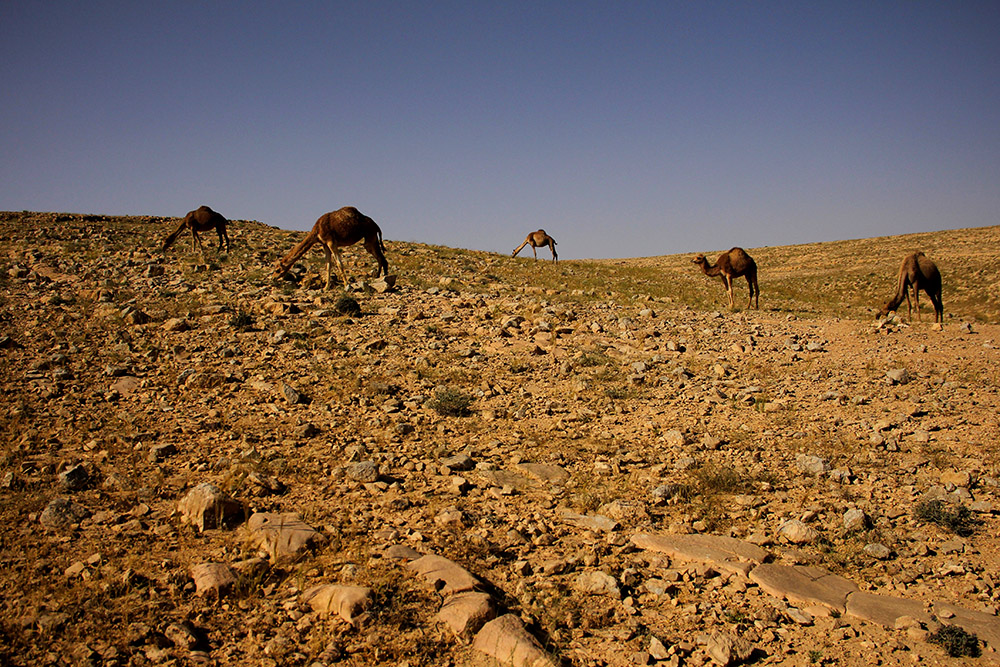
The absurd plot thickens when you learn that one of the problems authorities have with the camels is that they are drinking the water of the Somali wild asses. The Somali wild ass is one of the animals included in a wider project of the Israel Nature Reserve and National Parks Authority to bring back endangered and locally extinct animal species mentioned in the Bible. The asses were brought to the Negev (an-Naqab in Arabic) around the mid-1980s, and are allowed to roam freely in nature reserves. They are even provided with water troughs. It is heinous, to say the least, how the regime is politicizing nature and using it to enforce a settler colonial mentality. How can one animal be better than another? Why are some people privileged, while others don’t seem to matter?
The nightmarish joke is that about two-thirds of the Negev desert and some of its nature reserves have become designated firing zones for the Israeli army. You can most definitely see a jeep crossing a nature reserve or even spot a tank crawling on the hills; you may even hear soldiers being trained how to shoot; but camels are considered an alien entity in the desert. They are the ones that are seen to be harmful to the environment.
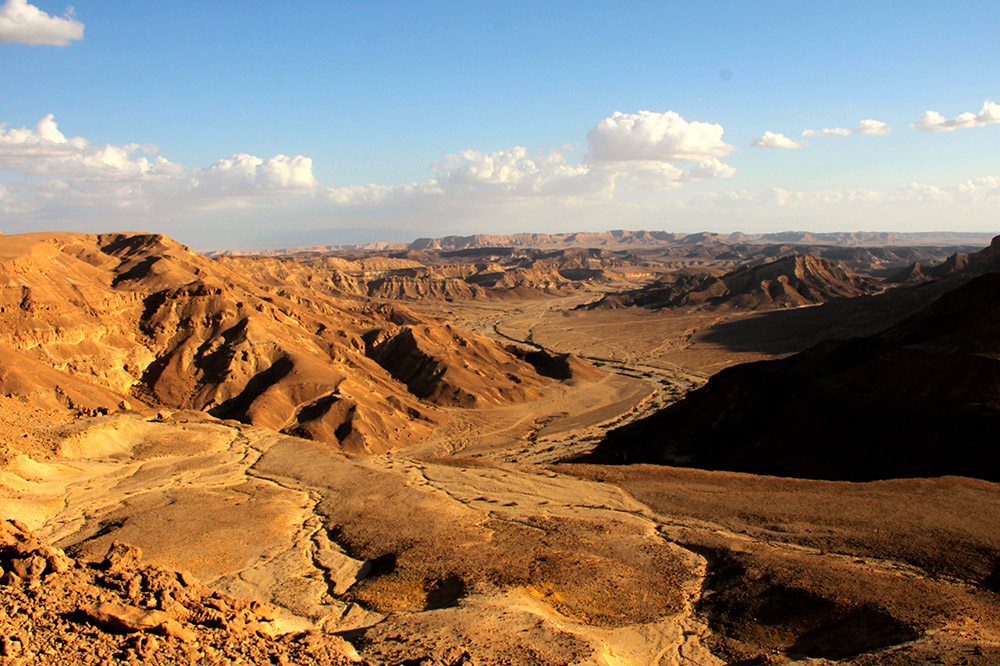
The disappearance of camels from the landscape is apparent. There are ten times fewer camels today than there were in the 1960s. Furthermore, the camel has no legal status under Israeli law; it is neither a farm animal nor a wild one, so most Bedouins have given up camel herding altogether. Ironically, when it comes to souvenir shops, camel dolls and tee-shirts are very popular.
Government interference in Bedouin life did not start or end with the control of camels. Since 1948 there has been wide dispossession of Bedouin lands. Many Bedouins have been displaced, herded into a restricted area. This has caused them to give up their nomadic life style and settle in unrecognized villages, where they now face the demolition of their homes. In the 1950s, similar to the camel issue, the herding of black goats, which remains a large part of Bedouin tradition and culture, was banned from nature reserves. (Recently, however, the benefits of the black goats to the natural habitat have been recognized, which may result in a change in the law.)
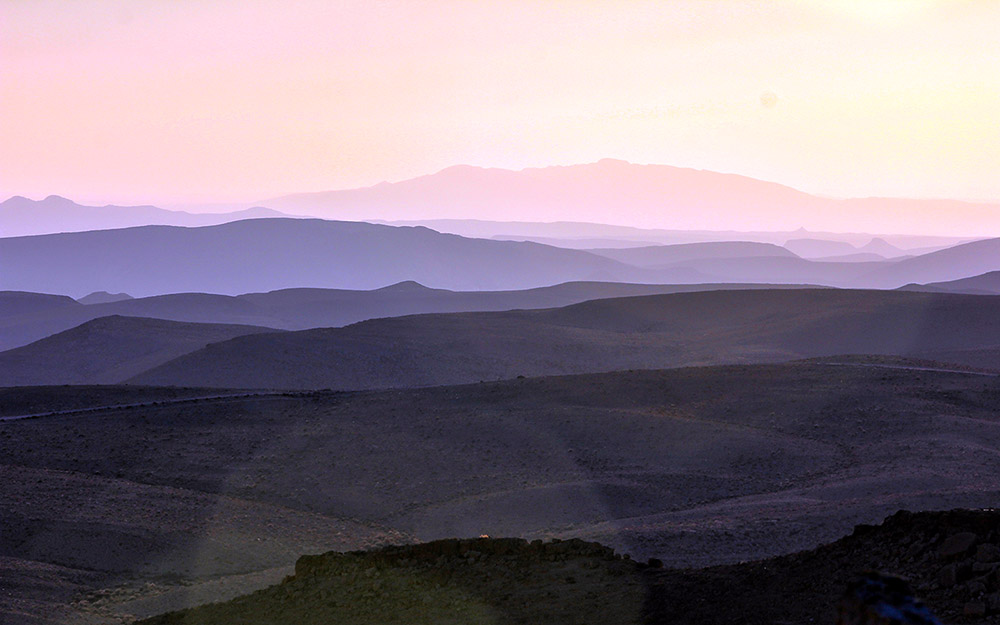
There have been several urbanization projects to resettle Bedouins to townships, where their ancient desert-dwelling knowledge ceases to be relevant, and they find themselves living on the fringes of modern, industrial Israeli society.
It pains me beyond measure that my country is taking an active part in the destruction of Bedouin culture, which should rather be treated as a national treasure worth preserving. I cannot stand by while this way of life is pushed out of its natural environment, forcing a rare and ancient culture to gradually go extinct.
Safinat al Sachra (The Desert Ship)
I met Hafez a decade ago, and became fascinated with the semi-nomadic way of life he had until he was 14, living as one with nature, sustained by seasonal farming, goat herding and the use of herbal medicine. His family, like many other Bedouin families, had very few possessions, which were carried on camelback during the family’s seasonal migration between Mount Negev in the summers and the Arava in the winters. They had an immense appreciation for the earth, water, wind, plants and mountains; they were not trying to control the desert, instead they knew how to “stroke” it, they coexisted with it. Contrary to our stressed and ruthless capitalist world, there is something spiritual in the Bedouins’ way of life and desert landscape. Walking on the exposed terrain, you can feel the vastness. It’s almost a shock when you see a courageous tiny flower sprout from the harsh land.
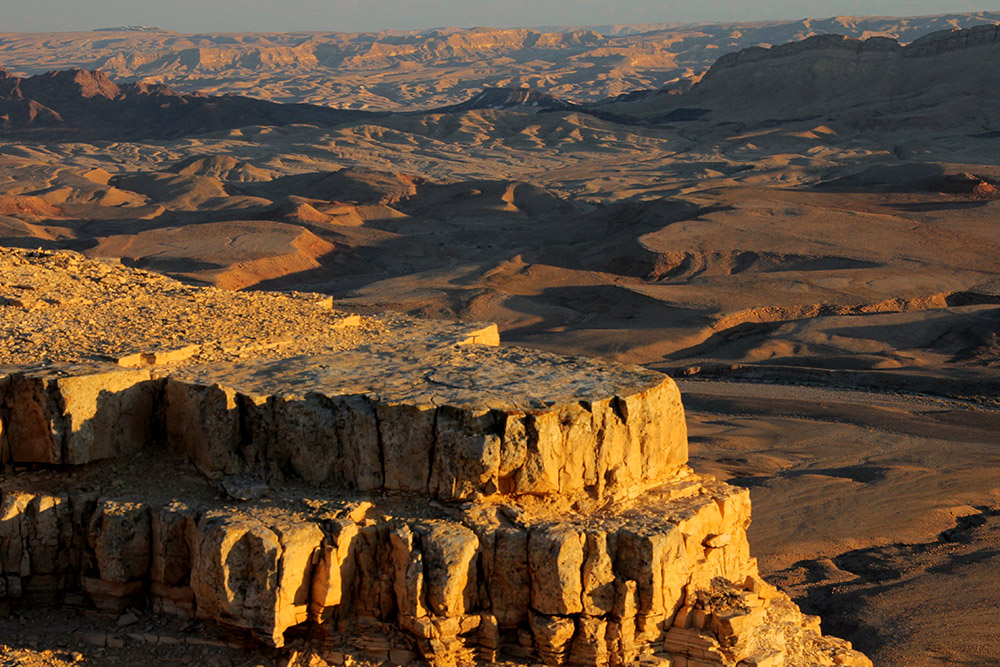
I remember the first time I spent the night in the desert under a million stars. I couldn’t believe that I’d missed this amazing sight until then. I had no idea the sky could look like that — as if I could feel the whole cosmos, a humbling experience. It is unbelievable the lengths we need to go to just to be close to nature, and yet how simple it really is.
When Hafez herds his camels, he is preserving a unique and ecological way of life, which dates back before the ancient days of Abraham. In his own way, Hafez is a messenger of a wisdom and intelligence that is beyond the reach of written law. I don’t want to live in a world where this way of living is being pushed from its natural environment and is being erased from the map. In a country that uses “nature preservation” to rule with its Jewish supremacist ideology, it prohibits something as rooted to the history and identity of this land as camel herding in the desert. It is this act that is leading to the disappearance of Bedouin culture as we know it.



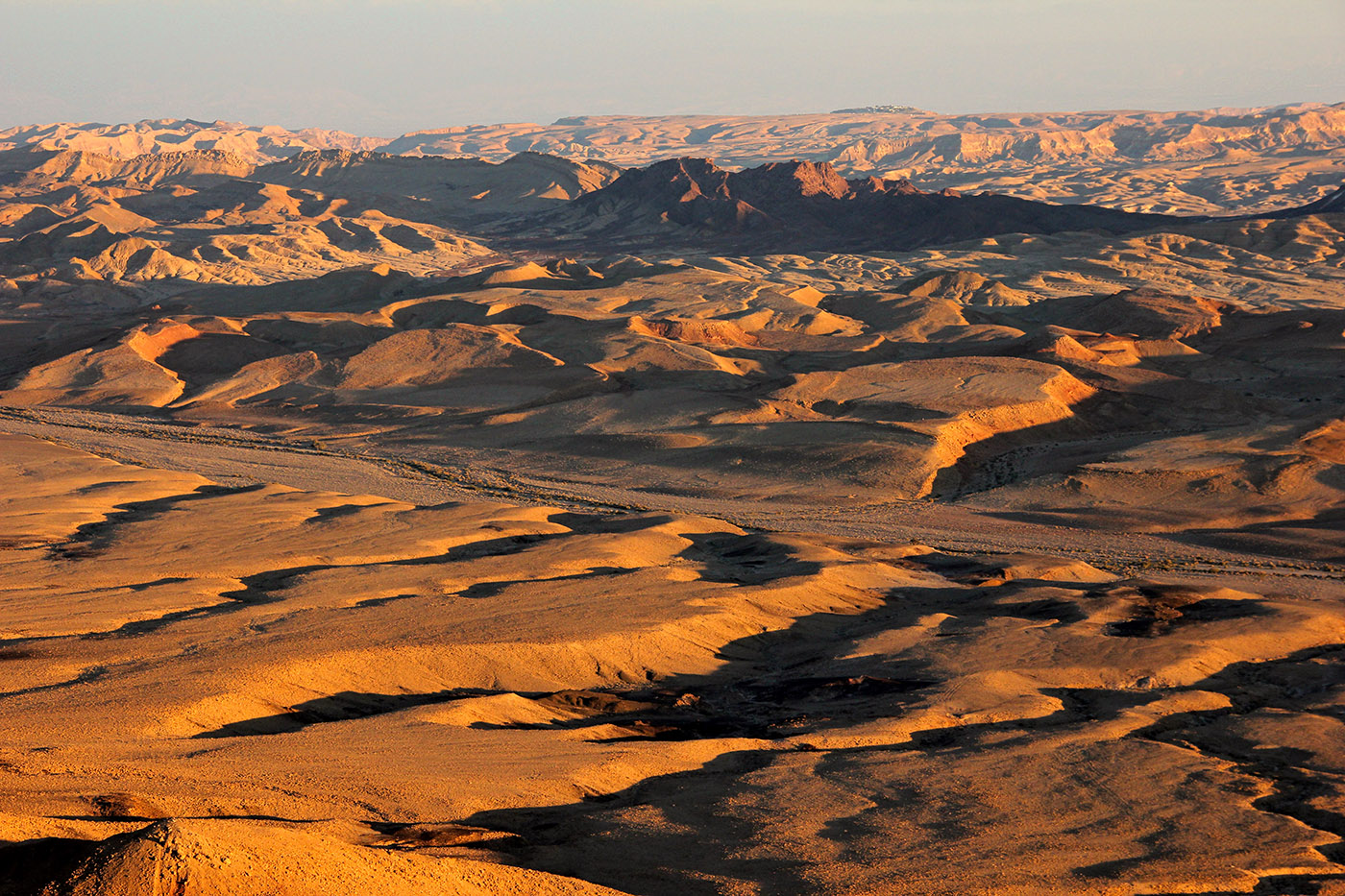





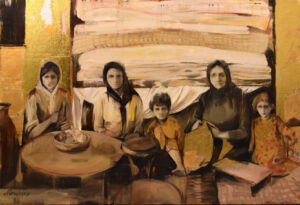

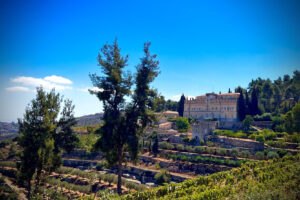





































































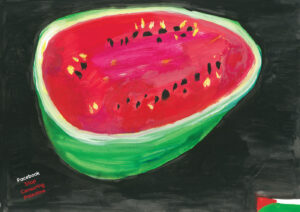



















![Fady Joudah’s <em>[…]</em> Dares Us to Listen to Palestinian Words—and Silences](https://themarkaz.org/wp-content/uploads/2024/03/SAMAH-SHIHADI-DAIR-AL-QASSI-charcoal-on-paper-100x60-cm-2023-courtesy-Tabari-Artspace-300x180.jpg)









































